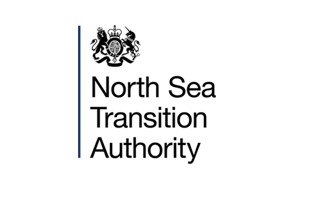
Operating costs in the UK Continental Shelf (UKCS) dropped by 14% in 2016 with operators securing approximately £1.1 billion reductions in operating expenditure (OPEX).
The “Analysis of UKCS Operating Costs in 2016” inaugural report, published today by the Oil and Gas Authority (OGA), shows that UKCS total operating costs fell for the second consecutive year in 2016, with more than half of UK operators achieving substantial cost reductions in 2016.
Lower costs are expected to be sustained for the next five years, supported by the efforts of those active in the UKCS to maximise economic recovery of its oil and gas resources.
The findings of the report include:
- The average Unit Operating Cost fell in 2016, for the second consecutive year, to £12 per barrel of oil equivalent (boe).
- The pace of cost reduction has slowed down, as Unit Operating Cost (UOC) fell by 18% in 2016 compared with a 22% annual reduction in 2015. UOC in 2016 was over a third lower (35%) than the peak seen in 2014.
- Excluding COP and start-up fields, total OPEX for continuing fields is lower and expected to decrease from 2017 onwards.
- There was high variation in costs between operators in the UKCS, with the highest UOC over 12 times more than the lowest UOC.
- There was a strong positive relationship between production efficiency (PE) and UOC. The top quartile operators (UOC basis) had an average PE of 84%.
- OPEX reduction in the UKCS was dominated by four operators who realised 60% of the total reduction in 2016. Total OPEX for the UKCS was £7.2 billion in 2016 compared with £8.3 billion the previous year.
- The range of operators achieving reductions in operating cost is diverse – the top performing operators include new entrants, national oil companies, oil majors and independents.
Andy Samuel, Chief Executive of the OGA, said: “This report shows the significant progress industry has made towards consolidating the operational cost base in the UKCS. The reduction in Unit Operating Costs, driven by a combination of lower costs, higher efficiencies and higher production volumes, is a positive story for the UKCS through what has been a difficult operating environment in recent years.
“This analysis allows the OGA to identify cost-efficient assets and operators and provide benchmarking metrics which benefit our asset stewardship engagements and help drive further improvements in efficiencies. It is important that operators continue to collaborate and share lessons learned to sustain cost efficiencies for the future, while continuing to maintain high standards of health, safety and environmental management. This will enable industry to withstand future oil and gas price fluctuations and be more profitable in periods of stability and growth.”
The report includes new information on UOC by field and geographical area, showing how costs are distributed at a micro level. The benchmarking data provided will aid peer group comparison and overall help validate the cost attractiveness of the UKCS.
Ends
Notes to editors:
- The ‘Analysis of UKCS Operating Costs in 2016’ report is expected to be updated annually and is one of a suite of benchmarking reports using data collected from the OGA’s UKCS Stewardship Survey.
- The report is split into a discussion of total OPEX, offshore field OPEX and UOC, which together provide an insight into the operating cost landscape in the UKCS.
- The offshore field OPEX benchmarking highlights the operating cost base for the UKCS. It provides operators with a field-specific perspective on the cost of operating (based on size and complexity).
- The Unit Operating Cost analysis provides a comparison of costs on a per barrel of oil equivalent basis and is a useful indicator of the extent to which operators have been containing costs, especially when benchmarked against other similar fields and/or against an overall industry unit operating cost index.
- Within the analysis of OPEX and UOC, a variety of categories such as facility type, asset location and proximity to cessation of production were analysed to allow for such peer group comparisons.
For more information, please contact Tracey Miller, Communications Manager.
Tel: +44 (0) 300 020 1072


